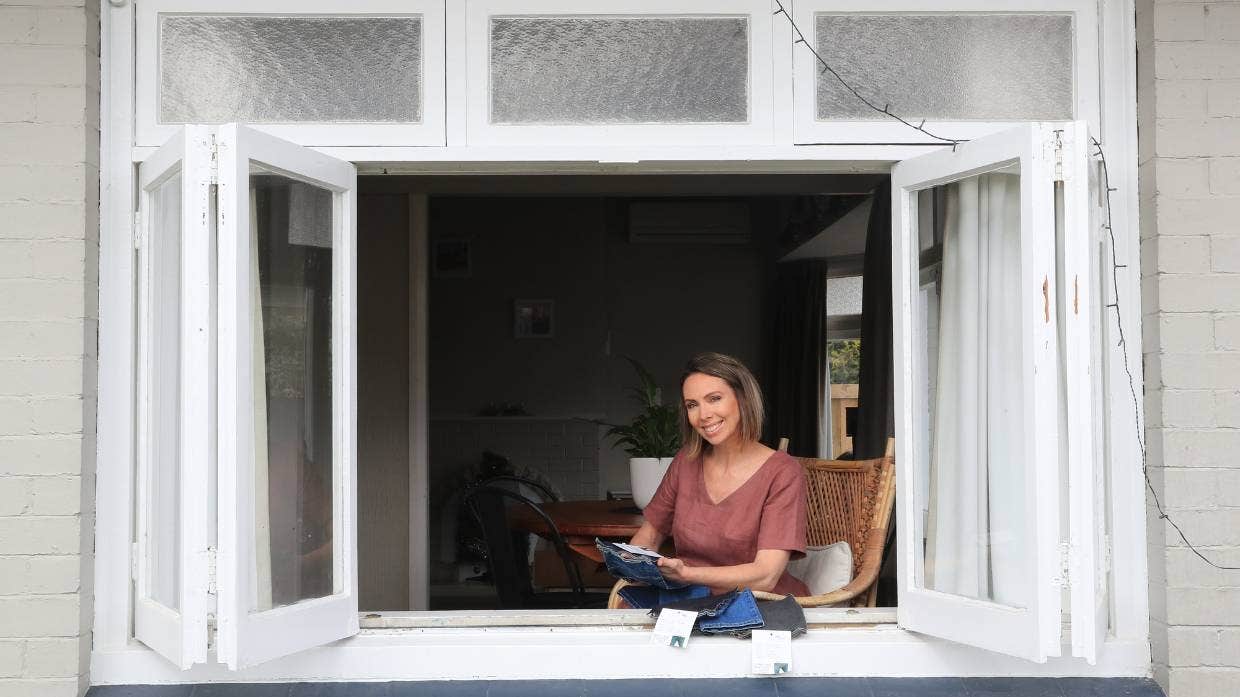
How ethical entrepreneurs go that little bit greener in their own home
See original article at Stuff.co.nz
How ethical entrepreneurs go that little bit greener in their own home
by Mikaela Willkes - 8 January 2022
The eco-renovator - Rose Hope
The 'recovering polluters' - Sarah and Richard Shirtcliffe
The wardrobe with dignity - Ana Wilkinson-Gee
Ana Wilkinson-Gee is the founder of Holi Boli, ethical fashion business.
(Photo Credit - Mark Taylor / Waikato Times)

Covid-19 saw Ana Wilkinson-Gee uprooted from her home of the past decade, and running her company from a garage in Hamilton.
The Kiwi fashion designer had graduated from the Fashion Design College of NZ (now Design & Arts College) and relocated to India with her husband and three children 10 years ago, following a lifelong infatuation with the country and its bright fabrics.
“We didn’t want to come back. It was very hard on the heart, to leave, because we’d been there 10 years," she says. Her youngest child, Eva, was just 16-months-old when they left NZ: “That was her home.”

“Initially it was quite stressful because the understanding in the village was that Covid-19 was a virus carried by foreigners.
“People would be scared of us. We were asked to stay indoors by local authorities, and did so for about 45 days, before we were evacuated.”
The family left their rural village near Sambalpur, India, to move back to a rented home in Beerescourt, Hamilton, where she continued running her company – ethical brand Holi Boli – out of a garage so that she could keep her staff employed during lockdowns in India.

When she was little, Wikinson-Gee’s mother made her clothes. Now, she makes her own.
Everything in her closet is by her own hand. Although she says it wasn’t until she worked in a factory in Christchurch that she started to question filling her own closet with fast fashion.
“I make my own things because I love to wear something that fits really well. I’m really fussy with pattern-making and am probably too critical of store-bought clothes made from plastic fabrics,” she said.

She likes things that are breathable, comfortable, and look tidy.
“I make my own things to satisfy myself. My wardrobe is full of samples I might’ve made on a Saturday just trying something out.”
Wilkinson-Gee, who is a finalist in the 2021 Women of Influence awards says it's important to understand the true price of the textiles we buy for our homes and wardrobes.
“A properly priced garment has paid living wages, so investing in quality means investing in someone’s life,” she says. “What we’ve got used to in our culture is the variety, and we’re encouraged to buy more; told ‘we deserve that’.
“Well, my question is –what about the woman who made that? What does she deserve?
“Someone is paying the cost, and I’m not going to wear a dress that has cost someone their dignity.”

Rather than buying five cheap items, she tries to spend the same amount of money on one well-made thing that she will absolutely love and will keep for a long time.
“I’d really encourage New Zealanders to invest in pieces that they love. Things that make them feel like themselves, and really good when they put them on.”
Holi Boli started out as a free sewing class to improve the lives of rural women.
Most of the women who came to her classes were lucky if they’d had schooling up until Year 5, some had until Year 10, and some were completely illiterate. Their father or husband would decide whether they could attend.
“In the cities it’s different, but I’ve encountered all of those reasons [to pull girls out of school].”
Two years later, one of the sewing graduates asked Wilkinson to give her a job. She launched Holi Boli, with the goal to be able to offer these trained women a workplace to use their new skills.

Wilkinson started designing high-quality, loose-fitting garments that would sell back in NZ, and as demand grew, she was able to take on more tailors. The women trained by her now number more than 170.
“I wanted to share those skills because I could see that it would help to transform and change the trajectory of women's lives in the village, for the better,” she said.
Garments are made from Using Fair Trade Certified, GOTS organic cotton, and other fabric suppliers who align with Holi Boli ethics. Any offcuts are upcycled into stuffing for pillows, or to make sanitary pads.
“Fabric wastage is very low because we have lots of ways to use it,” Wilkinson-Gee said.















